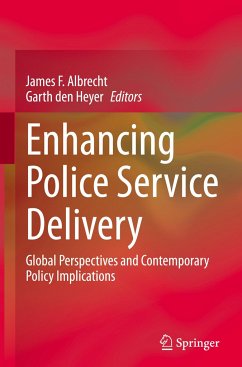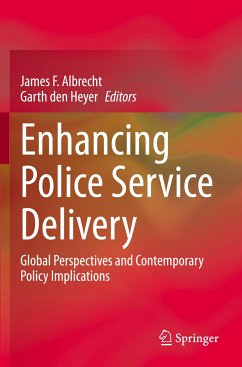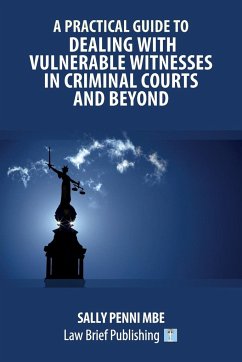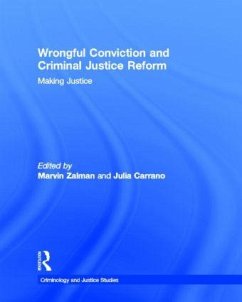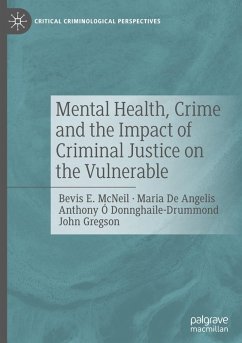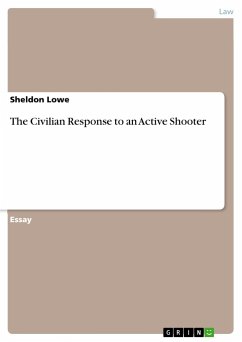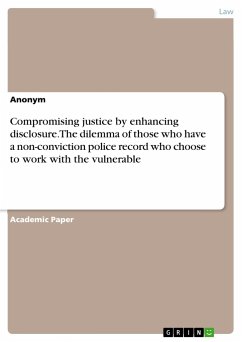
Compromising justice by enhancing disclosure. The dilemma of those who have a non-conviction police record who choose to work with the vulnerable
Versandkostenfrei!
Versandfertig in 1-2 Wochen
17,95 €
inkl. MwSt.

PAYBACK Punkte
0 °P sammeln!
Academic Paper from the year 2018 in the subject Law - Criminal process, Criminology, Law Enforcement, grade: 1, The Open University, language: English, abstract: This paper provides an alternative perspective of the use of non-conviction information through the enhanced criminal records disclosure (ECRD) regime under Part V The Police Act 1997 for employment in regulated activity which involves close contact with children and vulnerable adults, from the position of the individual about whom non-conviction information is held. I begin by considering some of the factors which contribute to the ...
Academic Paper from the year 2018 in the subject Law - Criminal process, Criminology, Law Enforcement, grade: 1, The Open University, language: English, abstract: This paper provides an alternative perspective of the use of non-conviction information through the enhanced criminal records disclosure (ECRD) regime under Part V The Police Act 1997 for employment in regulated activity which involves close contact with children and vulnerable adults, from the position of the individual about whom non-conviction information is held. I begin by considering some of the factors which contribute to the susceptibility of individuals to become involved with the criminal justice process resulting in a local police record being retained without a clear indication of morally culpable behaviour and the plausibility of reliably identifying trends of behaviour relevant to concerns of risk from the collation of this information. I examine the effect that the potential for disclosure of this information via the ECRD regime has on the operation of the criminal justice process, the tension between the suspected individual exercising his right to silence and the implications for doing so for his employability within regulated activity. I then consider to what extent he is assisted by the provision of guidance to make the decision whether to undergo an enhanced level check which risks the adverse consequences of the disclosure of non-conviction information, as well as the impact of the right to respect for the private lives of those individuals in circumstances where they do and where they do not consent to an enhanced level check. I examine the rationale contained in the literature which endorses the use of non-conviction information within the ECRD regime and consider how this may attempt to justify prejudicing the applicant on the basis of unproven or non-criminal allegations. Finally I review the recent case of R (on the application of SD) v Chief Constable of North Yorkshire [2017] EWCA Civ 1838 where the suspicion of inappropriate behaviour was considered a justification for disclosure and how the practice of disclosing non-conviction information fails to strike a fair balance between protecting the vulnerable and the right to respect for the applicant`s private life under Article 8 The Human Rights Act 1998.



